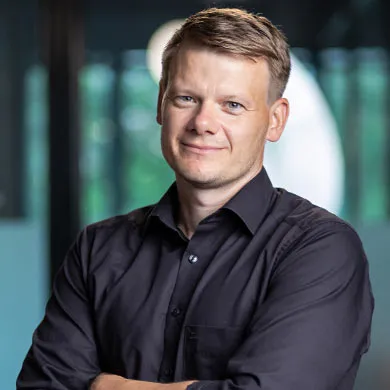Preliminary note: This is another part of our series of articles on questions you may be asked in a job interview. I have tried to make it as useful as possible for you by summarizing the most important ideas from the previous articles. It's also useful to read the questions you might be asked about your strengths and weaknesses.

Good preparation helps to reduce stress, boost your confidence and ensure that you are mentally prepared for all possible scenarios. This includes honing your answers, practicing your language skills, your facial expressions and gestures and your ability to maintain eye contact. Knowing that you are 100% ready gives you an advantage and can be crucial in making a decision in your favor.
Table of contents
The job interview is a once-in-a-lifetime opportunity that will not be repeated, so first impressions are crucial to your success. In this context, preparing for the interview is an elementary homework assignment for you that can change the course of your career. It's not just about memorizing answers to potential questions. It's about developing a deep understanding of the company and its culture and analyzing how your skills and achievements fit in. It's about convincing the employer that you are a qualified professional and how the company can benefit from your individual skills.
What kind of interview questions are asked?
Interview questions can be divided into several main types, each of which plays a role in determining an applicant's suitability:
Standard interview questions: With these questions, the recruiter is trying to find out what the applicant knows about the company, why they applied for the job and what their weaknesses and strengths are. The recruiter will also ask the applicant to tell something about themselves to find out if they will fit into the team and what their beliefs and values are.
Questions about personality in the interview: These are used to assess the applicant's personal side as well as their professional skills. They are important because the answers to these questions will determine how easy it will be for the applicant to fit into the company and whether they will be able to interact and work effectively in a team.
Questions about motivation and goals in the interview: The employer can ask the applicant about their professional goals, their interest in the company or industry and the reasons why they have chosen this company or this position. This dialog helps to assess how motivated and interested the applicant is in a long-term collaboration.
Technical questions: This is about professional skills, competencies and knowledge. The employer may ask about specific technical skills, experience in a particular field or knowledge of certain tools, software tools or methods.
Behavioral questions: These questions aim to analyze the applicant's previous experience as an indicator of their possible future behavior. They often include questions about how the applicant has dealt with conflict, worked in a team or managed projects. These types of questions help to assess how the applicant might react to certain work situations. They can present hypothetical scenarios or stories about real situations from the applicant's experience to find out how they would react and make decisions. It also explores whether the applicant will fit in with the company culture.
About expectations: Most employers find it revealing what the applicant's expectations are for their future job. This provides information on whether their goals and visions match. Based on the strategy a potential employee develops for himself or herself, a company can determine how much he or she is looking forward to the job and whether he or she is able to perform the tasks efficiently.
Each interview question is designed to provide information about different aspects of the applicant, from professionalism to personal qualities and the ability to adapt to new challenges. Therefore, you should prepare well and fully for the questions if you want to get a good job in your desired company. It is worth remembering that many of these questions can be hidden. Answering these questions requires full concentration and attention.

Interview questions: the part of the job interview that will always take place
When you prepare for a job interview, you are trying to think ahead and give yourself an advantage. Interviews vary from company to company, but there are some questions you're always likely to hear, regardless of your industry or professional background. Knowing these questions will help you prepare and feel more confident. Here are the questions that are most frequently asked in job interviews. I would also like to introduce you to possible answers that have proven themselves in practice. Your aim is to show your strengths, your professionalism and your team spirit and to communicate them as added value for the company. Use this information to make a convincing impression in a job interview.
Standard questions in a job interview
It may sound banal, but every job interview has something in common. They are questions that allow the employer and the applicant to get to know each other. The importance of these questions lies in the fact that in 90% of cases the answers form the first impression, which is difficult to change later.
1. what do you know about our company?
When looking for a job, we often send our CV to several companies at the same time in the hope that at least one of them will offer us a job or at least an invitation for an interview. With this question, the employer wants to find out how seriously you take the position at the company in question. Detailed knowledge about your possible future job makes you a qualified applicant who is able to gather and analyze information. If you work with concrete data and figures about the company, its products or services, this can make a positive impression on the employer and persuade them to choose you. Employers will also feel flattered if you present information about the company and already know your way around.
A positive example of a response is: I have been following your company for some time, especially through your news and social channel activities. I have noticed that you are a leader in [specify industry or sector]. I was impressed by your significant contribution to [specify product, service or project]. You are known for your achievements [give examples] and for improving the product [give a percentage or quantitative increase].
A negative answer example is: Honestly, I don't know much about your company. I didn't really do any research before I applied. I know you are in the industry, but I don't know the exact details yet. I thought it would be better to find out more directly during the interview. I hope you can tell me more about the company and what makes it special.
When answering this question, you should not provide any unconfirmed information or rumors.
2. why do you want to work for us?
Of course, every job is about earning money and developing professionally and personally. When an employer asks you why you have chosen to work for their company, they expect an answer that is primarily for their own benefit. This type of question can also be a hidden way to find out your main motivation, revealing the motives behind your application.
An example of a positive answer is: I want to work for your company because it is a leader in [specify industry]. Also, this position will allow me to utilize the potential of my knowledge and skills better than in other companies [specify knowledge and skills]. That will help me to achieve my goals [state these goals] quickly and efficiently by producing the best possible results for your company.
Here you should indicate how you can help the company in practice. Answers should be as honest as possible so as not to raise unreasonable expectations.
An example of a negative answer is: I want to earn 10,000 euros to go on a trip around the world. Even if you have a goal, such an answer probably shows that the company is only a short-term stay for you.
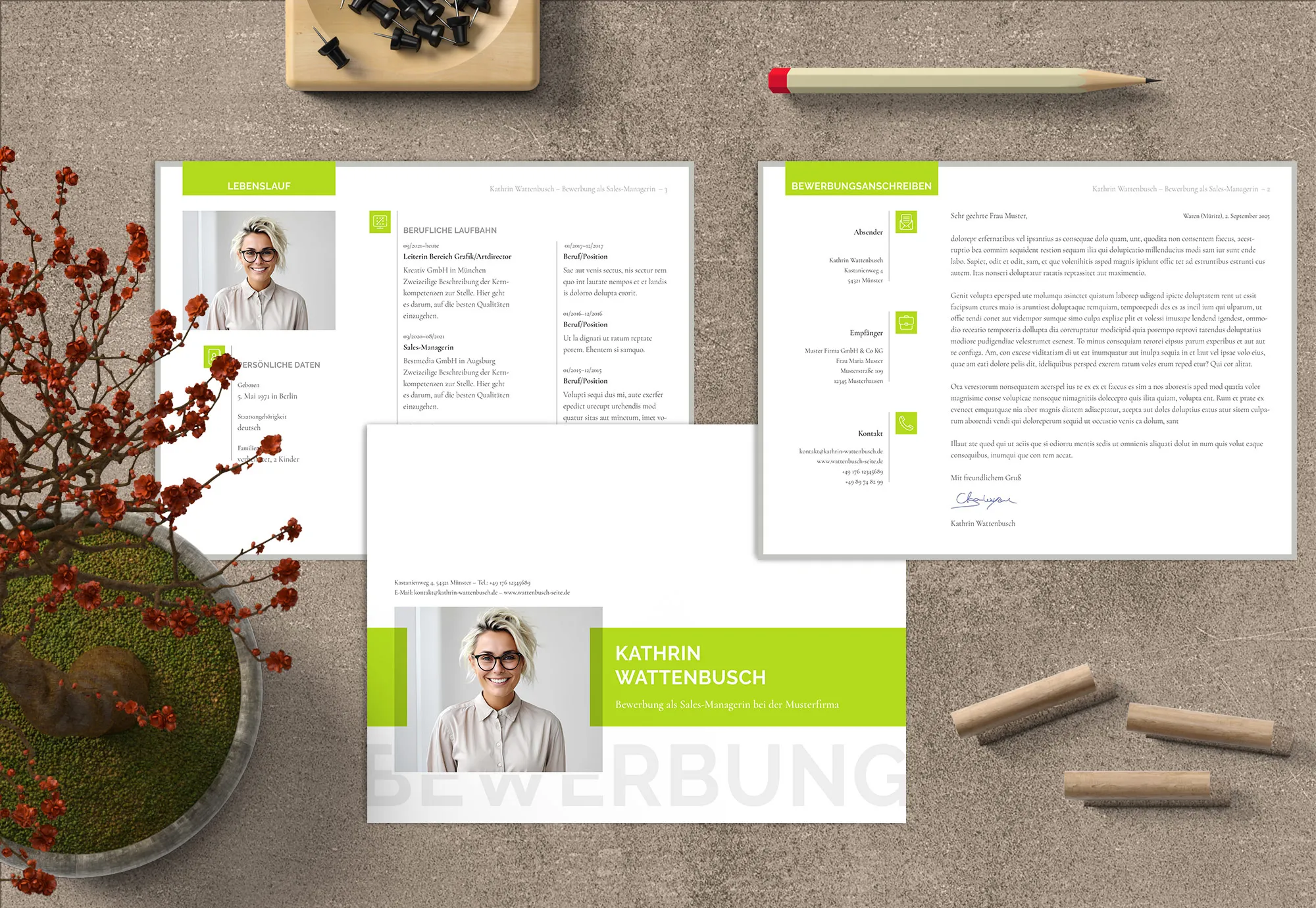
3. how do you see yourself working in our company in a year's time?
This question shows the employer's interest in your future work strategy. What you want to achieve while working in his company and what he will gain from it. Under no circumstances should you describe unattainable goals.
A positive example of an answer is: I want to apply and develop my knowledge and skills in [describe the industry and field]. I see myself as a person who will achieve the following goals with a team [describe these goals]. I will achieve this through [describe your specific actions and steps].
The advantage of this answer is that you show that you are able to plan for the long term and implement your plans step by step.
A negative answer example is: I see myself in your position right now. This kind of seemingly funny answer will rarely lead to success. Answers that will help the company to make a dramatic change of direction thanks to your employment are also inappropriate because they devalue the achievements of the company and the previous team.
4. tell us about the tasks you performed in your previous job.
The answer to this question should be specific and without exaggeration. If possible, choose 2-3 of the best tasks or projects you worked on and describe them in detail, from the planning of the work to the results achieved.
An example of a positive answer is: I participated in a project [describe the project] in which I took on tasks [tell us what you did] in which we accomplished the following goals over time [specify the time period] [describe your accomplishments and the benefits you received from them].
You can also tell us how this experience can be used in practice in the employer's company and how it will benefit them.
A negative answer example is: In my last job I had various tasks, but I didn't really take on much responsibility. I mainly did routine work and focused on completing my daily tasks quickly. There wasn't much variety and communication with other departments was minimal. I often just did what I was told without showing much initiative. Overall, the tasks were rather monotonous and I didn't feel like I could develop or was really challenged.
Stay honest and don't praise yourself for the achievements of others. Instead, you can emphasize that it was a well-planned team effort and that you were proud to have contributed to the community's success.
Do you still have questions about your future job?
This seemingly simple question is a tough one. Not only does the recruiter want to know what you know about the job and how seriously you're considering it, but they also want to know if you're able to communicate effectively about work-related topics that you don't yet fully understand. This question is more about showing your interest in the company. Good answers to this question are therefore not necessarily related to a specific job. Questions about potential promotions or the speed of salary progression are inappropriate.
A neutral answer: I am interested in your projects such as [describe the projects] and how I can contribute most effectively in this position. If you don't have enough information about what the company does, ask, for example: How does your company help your employees grow professionally?
Other good questions are:
- How is the team set up where I will be working?
- What are the company's current challenges? Where does the company see itself in three to five years?
- Who will I report to, who do I report to?
- What does a normal working day look like here? How does a standard project work here in the company?

Questions about personality in the interview (job interview)
In job interviews, employers often want to see more than just your professional skills and experience. Personality questions help your chosen company to understand who you are as a person and how your individual characteristics can influence the team dynamic. Below are some of the most common questions that help employers find out about your motivation, values and ability to adapt to the company culture. If you are prepared for these questions, you can significantly increase your chances of success by demonstrating that you will be a qualified employee and a valuable team member who is willing to cooperate and contribute positively to the work environment.
1. how would you describe yourself?
People are always interested in how you present yourself to others. Especially when it comes to hiring you as a potential employee. After all, your answers will determine how well you fit into the team, what your ambitions and goals are and how effective you can be in the position. In your answers, it is important that you do not attribute qualities to yourself that you do not have and that you do not conceal your strengths. Try to be as honest and sincere as possible.
An example of a positive answer is: I would describe myself as a dedicated, goal-oriented and team-oriented person. I have a strong problem-solving ability and enjoy working on new challenges. My previous experience has taught me to work efficiently both independently and as part of a team. Reliability and open communication are particularly important to me. I always strive to develop my skills and expand my knowledge in order to achieve the best possible results.
A negative answer example is: I'm actually pretty normal and try to get my work done somehow. I would say I'm usually on time and do what I'm told. Sometimes I prefer to work alone because it's less stressful. Otherwise, I'm rather average and just see my work as a job.
An important point in answering this question is the balance between modesty and arrogance. This is not the case if you have to add value to yourself by singing your own praises. A good answer also involves focusing on the company, its culture and its goals, and how you can add value with your skills, competencies and success habits.
2. tell us about your biggest failure.
The recruiter wants to know if you are able to admit mistakes and how you have worked to correct them. It's not so much about the failure itself, but about the lessons you learned from it and your ability to respond. In a way, it's not always about self-inflicted failures, but about the conditions that led to them. The important thing is to see how you dealt with it so that you can learn from it for the future.
A positive example of an answer is: I worked in a team of accountants who prepared invoices for our customers. And although everything was invoiced correctly, I chose the color red for the email texts when sending the documents, which looked like an aggressive request and led to some misunderstandings with our partners. To mend relations, I studied the psychological impact of colors better and chose muted, dark gray tones, which are more suitable for email texts.
Another example of a positive response: My biggest failure was a project I managed in my previous position. We were supposed to implement new software within six months, but due to a combination of poor planning and communication within the team, the project was delayed by three months. I learned from this how important it is to set clear goals, continuously monitor progress and communicate regularly with everyone involved. This failure motivated me to improve my project management skills and be better prepared for potential challenges. In my next project, I was able to successfully apply these learnings and complete it on time.
A negative answer example is: My biggest failure was when I missed the deadline on an important project. It was a stressful time and I just didn't work hard enough to finish it on time. That was really annoying, but I think it happens to everyone. Since then I've tried to work harder, but sometimes something comes up again.
These examples illustrate how an applicant can use their biggest failure constructively to show their willingness to learn and develop, or how a negative answer can give little insight into learning ability and a sense of responsibility.
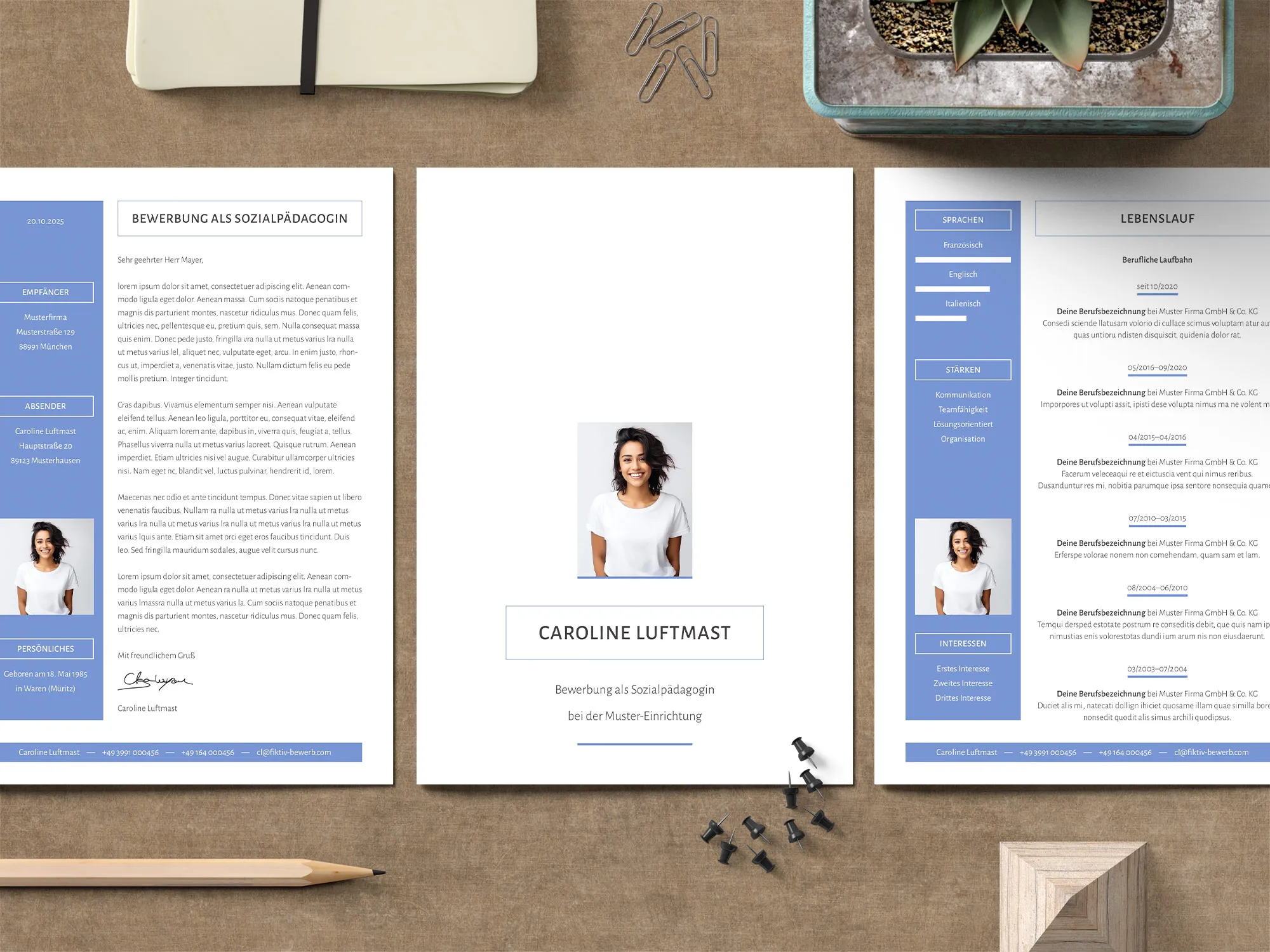
3. how do you deal with criticism of yourself?
Few people realize it, but criticism is one of the factors that can throw a person off their career track for a long time. The ability to properly take it and turn it into strong incentives makes employees a valuable asset to the organization.
A positive example of a response is: Constructive criticism is an opportunity for me to look at my professional qualities from a different perspective and draw the right conclusions for improvement. I take it as an indication that I should take steps to improve my knowledge and skills in line with the company's goals and processes.
Another example of a positive response: I see criticism as a valuable opportunity for further development and improvement. When I receive criticism, I listen carefully and try to understand the critic's perspective. I then reflect on the feedback and think about how I can incorporate it into my work. One example of this was when my line manager pointed out that my presentations were too detailed and difficult to understand. I responded by working on my presentation skills by focusing on the essentials and providing clear, concise information. This adjustment made my presentations more effective and easier to understand. For me, criticism is an important part of personal and professional growth.
A negative response example is: Honestly, I struggle with criticism. I often feel personally attacked and become defensive. Once my colleague criticized my way of working and I just argued back instead of thinking about it. Sometimes I just ignore the criticism because I think I know best how to do my job myself. I find it difficult to accept criticism without feeling bad.
A reaction that, on the contrary, can be harmful: I don't respond to criticism. Where there's graft, there are chips. Such statements may indicate that you are unable to work on and correct your mistakes and are unlikely to convince an employer to consider you.
4. have you ever had to make an important decision and suffered the consequences?
Every job involves making important decisions. The way you do this will determine how effective and competent you are as an employee, especially if you are applying for a management position. Most employers are interested in your experience in this area. If you have had one, you should share it honestly. Even if the decision was wrong, describe how you realized it and what precautions you took to avoid a repeat.
If you have no experience of making important decisions, you should take this into account: I would have thoroughly analyzed the situation and weighed all the pros and cons before making a decision and choosing the least harmful solution.
A positive answer example is: Yes, in my previous position as a team leader, I once had to make the decision to restructure a project because it was not progressing as expected. This decision meant that we needed some additional resources and the original deadline had to be postponed. Although this was initially met with resistance from some team members and stakeholders, I was convinced that this was in the best interest of the project. I clearly communicated the reasons for my decision and organized additional support. Ultimately, this restructuring resulted in the project being successfully completed, the quality was significantly higher and we learned valuable lessons for future projects. The positive feedback after the project was completed confirmed that the decision was the right one.
A negative response example is: Yes, I once had to decide whether we should introduce new software. I made the decision without really looking at all the options thoroughly because we were under time pressure. Unfortunately, it turned out that the software did not meet our requirements and we had additional costs to switch to a different solution. This led to delays and dissatisfaction within the team. Looking back, I should have invested more time in evaluating the options, but at the time I was just too stressed to do it properly. It was an unpleasant experience and I hope I don't make the same mistake again.
These examples show how an applicant can describe positive and negative experiences with important decisions and their consequences, and illustrate the differences in approach and reflection.
5 How do you perceive mistakes?
A potential applicant's reaction to mistakes is one of the most important things employers look for. It shows whether you are able to analyze your work and correct mistakes in a timely manner.
An example of a positive response is: I view mistakes as valuable learning opportunities. Every mistake offers a chance to improve my skills and better master future challenges. When I make a mistake, I analyze the cause and think about how I can avoid similar mistakes in the future. One example is when I overlooked an important deadline in a project. Instead of covering up the mistake, I immediately reported it to my line manager and together we developed a plan to minimize the loss of time. This experience has taught me to manage my deadlines better and ensure that I no longer miss important deadlines. For me, mistakes are an incentive to improve and a natural part of the learning process.
A negative answer example is: Mistakes are always very frustrating and unpleasant for me. When I make a mistake, I often get angry about it for a long time and find it difficult to continue. I once created a report incorrectly at work and it bothered me for days. I tend to criticize myself a lot and fixate on the mistake instead of learning from the situation. Sometimes I worry so much about a mistake that it negatively affects my work. I try not to make mistakes.

Job interview questions about motivation
Motivation is the key to a successful career. Recruiters want to know what drives you. Asking questions about motivation in the interview will help them find out why you chose this career, what inspires you at work and how you can maintain your passion for the job in the long term. The answers to these questions can make your understanding of the job and your vision for the future in the company transparent. Good answers will score you points when deciding whether you are the ideal candidate for the job.
1. why did you choose our company?
With this question, the company wants to find out what you know about the company and what you expect from working there.
An example of a positive answer is: I chose to work for your company because I am impressed by your innovative corporate culture and commitment to sustainability. Your projects in [specific area or industry] and your market leadership in [specific technology or service] are a perfect match for my professional interests and goals. I also appreciate the opportunities for personal and professional development that you offer your employees. In my career to date, I have already gained experience in [relevant field] and I am convinced that I can make a valuable contribution to your team with my skills and motivation. Your company stands for quality and innovation and I would like to be part of this successful and dynamic team.
A negative answer example is: Honestly, I applied to several companies and your company was just one of them. I urgently need a job and your company has just advertised positions that fit my profile. I don't really have much information about your company, but it seems like a good opportunity to get a job. Also, your office is close to my home, which is very convenient for me.
These examples show how a positive answer can convey an applicant's enthusiasm and specific interest in the company as well as their suitability for the position, while the negative answer shows disinterest and lack of preparation.
Remember that some answers can make you look bad. Try to avoid sentences like this: I've heard you pay high salaries. My friends have told me that even low performance is not noticed or tolerated.
2. what are your professional goals for the next five years?
The person conducting the interview will check whether your goals are in line with the company's direction. Do you plan to keep the job for a long time, or is it just a temporary stop for you?
For example, if you are applying for a position in the marketing department, it is a good answer to say: I plan to develop my skills in digital marketing and become one of the leading experts in this field who will also contribute to the growth of the company.
An example of a positive answer is: Over the next five years, I aim to further develop my skills in the field of [specific career field] and continue my education. My goal is to advance to a management position where I can lead a team and make strategic decisions. I would like to work in an innovative environment where I can actively contribute to the further development of the company. It is important for me to strengthen both my professional and social skills. Another goal is to deepen my specialist knowledge through additional qualifications and further training and to learn new technologies or methods that are relevant to our industry and your company. Overall, over the next five years, I would like to contribute to the successful implementation of your company's goals and at the same time advance my own professional development.
A negative answer example is: I don't really have any clear career goals for the next five years. I just want to have a secure job and not too much stress. If everything goes well, I see myself in the same position as today. I don't have any big ambitions or plans for further training. The most important thing for me is to have a permanent job and not have to take on too much responsibility. Career planning is not so relevant for me, I take it as it comes.
Also avoid answers like: "I hope that I can progress quickly in my career." Or: "I can see myself in your position in 5 years."
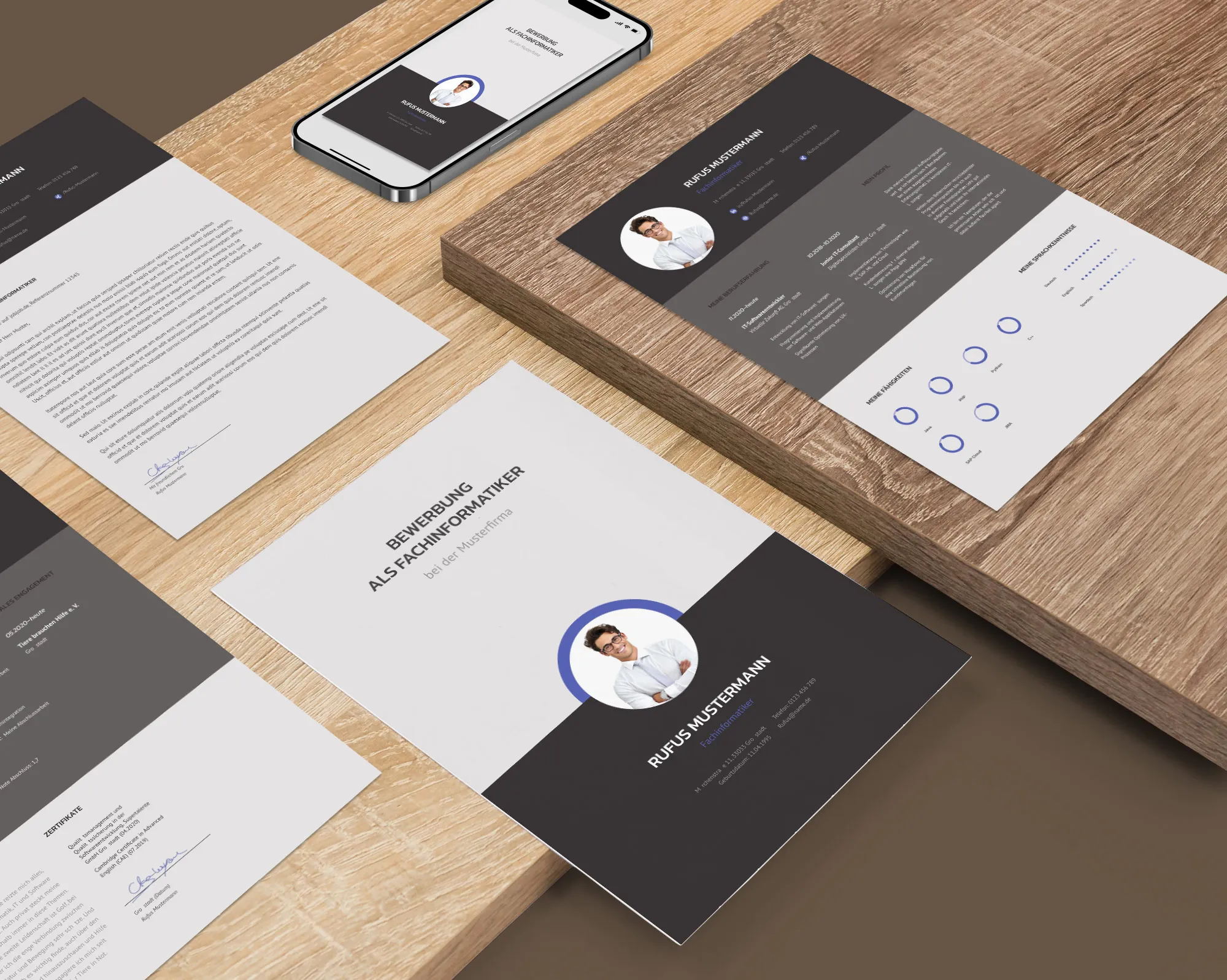
3. what motivates you most at work?
When hiring, many companies want to find out what motivates potential employees in their work and how that affects productivity.
An example of a positive answer is What motivates me most at work is the opportunity to make a positive contribution and achieve visible results. It inspires me when I see that my work makes a difference, be it through the improvement of a process, the successful implementation of a project or customer satisfaction. I also value teamwork and the exchange of ideas, because together we achieve more and learn from each other. I am also driven by the opportunity to constantly learn and develop myself further. I am particularly motivated when I have challenging tasks that stretch my skills and stimulate my creativity. It's a great feeling to be proud of the work I've done at the end of the day.
A negative answer example is: What motivates me at work? Well, to be honest, mainly the salary. As long as I get paid on time, I'm happy. I'm not particularly ambitious when it comes to professional challenges and see my work more as a means to an end. Even if the work itself is sometimes boring, it's important to me that my working hours are regulated and that I have enough free time. Further development and teamwork are of secondary importance to me. The main thing is that I have a secure job and my life outside of work is not affected.
4 How do you best motivate yourself in your day-to-day work?
The interviewer may be interested in whether you can also be productive in less exciting situations. That's why job interviews often ask how you deal with routine.
An example of a positive answer is: I motivate myself in different ways in my day-to-day work. Firstly, I set myself clear and achievable goals, both short-term and long-term. Achieving these goals gives me a sense of fulfillment and drives me on. I break down larger tasks into smaller, manageable steps to see steady progress and avoid feeling overwhelmed. I also find motivation in working with my team. Sharing ideas with colleagues, solving problems together and achieving team goals inspire me and give me new energy. Regular feedback and recognition, whether from superiors or colleagues, also motivate me a lot. Another important aspect is that I plan regular breaks and make sure I maintain a good work-life balance. These breaks help me to maintain my energy and concentration. Finally, I also look for opportunities for professional development and training. Learning new skills and taking on new challenges keeps my day-to-day work exciting and motivating.
A negative response example is: To be honest, I sometimes struggle to motivate myself. I often just wait for my colleagues or my boss to spur me on. Sometimes the prospect of the weekend or vacation motivates me, but otherwise I find it hard to get excited about daily tasks. I usually just do what is necessary to get through the day.
5. how do you measure the success of your work?
One of the most important aspects of an interview is finding out how you measure success in your job. The way you evaluate your performance will determine how productive you are at your job.
A positive example of an answer is: I measure the success of my work by several factors. First of all, the quality of the results is crucial - I make sure that my work meets the highest standards and meets or exceeds the expectations of my superiors and customers. Another important criterion is the achievement of set targets and milestones within the given deadlines. Feedback from colleagues and superiors is also important to me, as it shows me whether my work is appreciated and seen as valuable within the team. In the long term, I also measure my success by how I develop personally and professionally and whether I acquire new skills and knowledge. Ultimately, I see my success in making a positive contribution to the company and implementing sustainable, successful projects.
A negative answer example is: To be honest, I measure the success of my work mainly by the fact that I have completed my tasks and have not received any complaints. As long as no one is dissatisfied and I don't make any mistakes, I see my work as successful. I tend to stick to what I'm told and I'm satisfied if I have peace of mind at the end of the day. Feedback or personal development are not so important to me, the main thing is that the work is done and I get my salary on time. Targets and quality standards are good, but I don't attach too much importance to them.
Questions about professional knowledge in the job interview
In every job interview, you not only have to prove your personality, but also your professional qualities. Questions about your background, skills and knowledge form the basis for the interview about your suitability for the job. Let's take a look at the main types of questions you may be asked when it comes to your professional skills. We will discuss how you can effectively demonstrate your professional skills, your extensive knowledge and your ability to apply it in real work situations. By preparing answers to these questions, you can present yourself as a highly skilled professional who can solve complex problems and contribute to the success of the organization. Are you ready? Here we go.
1. what are the most important skills and knowledge you acquired in your last job?
This question helps to assess the extent to which the applicant's experience matches the requirements of the job and what skills and knowledge the applicant can bring to the new position. It also helps to understand how much responsibility and initiative the applicant had in their previous position.
A positive example of an answer is: In my last job, I was responsible for developing large-scale web applications that required in-depth knowledge of JavaScript and React. I implemented a number of optimizations that increased system performance by 30%. With these skills, I can use new technologies effectively in your projects.
Another example of a positive response: In my last job, I gained a variety of important skills and knowledge that have helped me advance professionally. One of the key skills was project management. I have learned to lead projects from planning to implementation, managing resources effectively and ensuring that objectives are met on time. In addition, I developed my communication skills, especially in working with different departments and dealing with customers. Another valuable experience was the use of modern software tools such as JIRA or Trello, which optimize our work processes. This knowledge has enabled me to work more efficiently and develop innovative solutions. Finally, I have also learned a lot about teamwork and leadership skills by leading smaller teams on various projects.
A negative answer example is: I didn't actually learn much new in my last job. The work was fairly routine and there were few opportunities to learn new skills. I mainly did my existing tasks and didn't really participate in projects that would have taken me further. It was more or less the same as what I had done in my previous jobs. I did get to know a few new software tools, but nothing that was really worth mentioning. Overall, it was more a phase of stagnation than learning and developing.
2. tell us about a project you are proud of. Why did you choose it?
With this question, the recruiter wants to find out what motivation and passion the applicant has for their work by selecting and leading projects. It also reveals how the applicant approaches challenges and what successes they consider important.
A positive answer example is: One of my favorite projects was developing an e-commerce website for a start-up company. I chose this project because I have always been interested in e-commerce and wanted to implement innovative solutions to increase sales. We were able to increase visitor growth by 50% above our client's expectations in the first year.
Another example of a positive response: One project I am particularly proud of was the implementation of a new CRM system at my last company. I chose this project because it was very challenging and had a significant impact on the efficiency of our work processes. My role involved planning, coordinating and training employees. We had to ensure that the data migration went smoothly and that the system was seamlessly integrated into our existing processes. Through careful planning and close collaboration with the IT team and end users, we were able to successfully complete the project on time and within budget. The positive feedback from employees and the significant improvement in customer data management showed me that our work had created real added value. This project not only taught me technical skills, but also leadership and communication skills that I am very proud of.
A negative answer example is: I always pick easy projects so I don't have problems at work. This answer shows a lack of initiative and an avoidance of challenges.

3. how do you usually handle urgent tasks or projects under pressure?
If the employer asks you this question, they probably want to test your ability to handle stress and meet deadlines, and they want to know how you organize your work under pressure.
An example of a positive answer is: When I am confronted with urgent tasks or projects under pressure, I always keep a cool head and work in a structured way. First, I prioritize the tasks to ensure that I focus on the most important and urgent aspects. Then I create a clear plan with intermediate goals and deadlines to manage my time effectively. Communication is particularly important in these situations, so I keep my team and superiors regularly updated on progress and clarify any obstacles early on. One specific example was an urgent project where we had to prepare an extensive presentation for an important client within a short space of time. Despite the high pressure, I managed to motivate the team and distribute the tasks efficiently so that we were able to complete the presentation on time and to a high quality. The success of this project showed that I can handle pressure well and deliver reliable results even in stressful situations.
A negative answer example is: I work nights and weekends when necessary. This may indicate poor time management and the risk of burnout.
4. how would you rate your knowledge of an industry-specific technology (here: Python)?
This question gives an indication of how the applicant assesses the skills required for the job and whether they are willing to learn and develop.
An example of a positive answer is: I would rate my knowledge of Python programming as advanced. Over the last five years, I have worked extensively with Python and successfully completed numerous projects. These have included developing automated data processing pipelines, creating web applications with Flask and Django, and implementing machine learning models with libraries such as TensorFlow and scikit-learn. In my last job, I also made a significant contribution to the introduction of best practices for code quality and documentation. I keep my knowledge up to date by regularly attending training courses and conferences. One particularly successful project was the development of a real-time data analysis tool that significantly increased the efficiency of our team. Based on this experience, I am confident in my ability to solve complex tasks effectively using Python.
A negative answer example is: I think I know this technology pretty well. The problem with this answer is that it sounds uncertain and does not give any specific details about your level of knowledge.
5. how do you find the balance between perfection and effectiveness?
There is a hidden message in this question. The main purpose of this question is to find out how you maintain a certain level of productivity in your work.
An example of a positive answer is: I find the balance between perfection and effectiveness by setting clear goals and prioritizing according to the project's requirements and resources. I realize that perfection is often time and resource consuming, while effectiveness means finding the best solution within the given constraints. In my work, I make sure to deliver the most important aspects of a project with high quality, while being pragmatic enough to recognize when something is good enough to meet the project goals. An example of this was a large project where we were under time pressure. I encouraged my team to focus on the critical components to make sure they worked perfectly, while we took a more pragmatic approach to less important details. This allowed us to complete the project on time and to the customer's satisfaction without compromising quality.
A negative response example is: I don't stick to the brief because I think it's better to do the work as I see it. Even if you are right, this answer shows that you have a negative performance discipline. It shows that you are not willing to do what is asked of you.
This type of professionalism question aims to show your professional skills, your sense of responsibility and your ability to develop yourself in a way that the employer can understand. It should therefore be clear and precise.
Job interview: Questions about teamwork
A job interview can test not only knowledge and skills, but also the ability to work effectively in a team. Employers want to find someone who not only works well with others, but also contributes to a positive and productive work environment. That's why they often ask questions about your teamwork skills during the interview. Your answers should reflect your communication skills, flexibility and willingness to compromise, which are important for any team. From dealing with coworkers to conflict resolution, the answers to these questions should provide deeper insight into how you fit into the team dynamic and how you can contribute to the overall success of the company.
1. describe a situation where you had to work with a difficult person on a team.
When you are asked this question, they want to find out how you resolve conflict and if you can deal with different people.
An example of a positive answer is: I remember a situation where I had to work with a colleague who was known for being very critical and sometimes stubborn. At first it seemed difficult as our working styles and communication methods were very different. Instead of focusing on the negative aspects, I decided to have an open dialog and actively listen. I tried to understand what my colleague's main concerns were and what his expectations of the project were. Through regular, constructive discussions and the search for common goals, we were able to create a basis for effective collaboration. Once, when we had to make an important decision on a project, I took his perspective into account and made suggestions that integrated both his and my ideas. In the end, we successfully completed the project and I learned a lot about how to work well with difficult personalities through communication and a willingness to compromise.
A negative response example is: I try to avoid people like that and work alone.
2. how did you react when your idea was rejected by the team?
Sometimes a recruiter is interested in an applicant's ability to accept rejection and continue to work together despite the disappointment.
An example of a positive response is: If my idea was not accepted by the team, I took the opportunity to understand why it was rejected. I actively asked for feedback to better understand my colleagues' perspectives and concerns. It was important for me to remain open and flexible rather than insisting on my idea. One specific example was when I suggested a new approach to our project management. However, the team opted for a different method. Instead of being disappointed, I listened carefully to the arguments and suggestions of the other team members and gained valuable insights. I then offered my support for the chosen method and helped to implement it successfully. This experience showed me that it's not just about your own idea, but about the best solution for the team and the project. It has strengthened my ability to deal constructively with criticism and to work as part of a team.
A negative response example is: When my idea was not accepted by the team, I was quite frustrated and disappointed. I had the feeling that my colleagues didn't understand my point of view or didn't take it seriously.
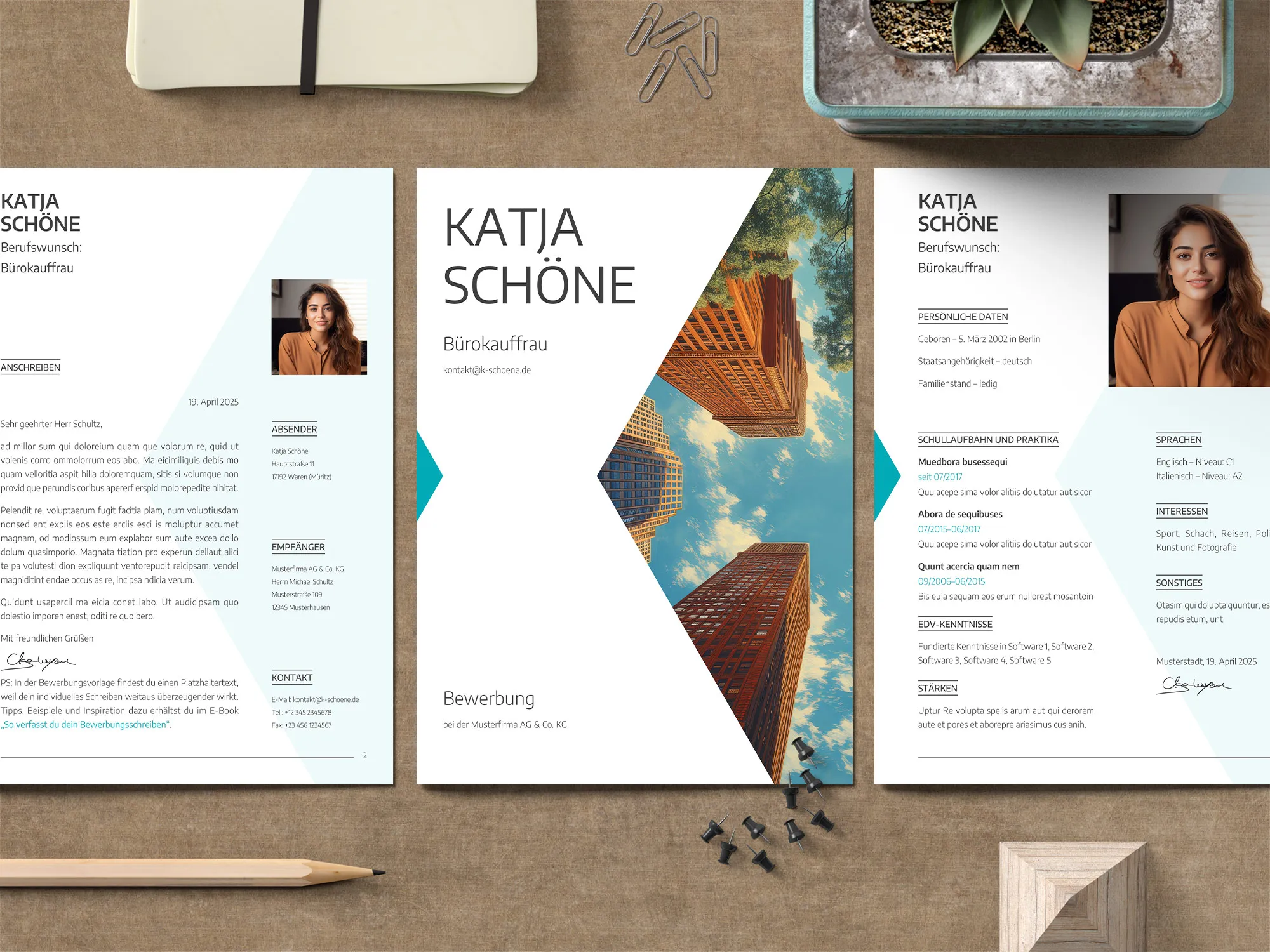
3. tell us about your experience of leading a team or project.
If the employer is hiring you, they want to recognize your leadership skills first and learn more about your experience leading a group to achieve common goals.
An example of a positive answer is: I led a development team on a project to develop a new application. I organized weekly meetings and consulted regularly with individual team members to motivate them and solve problems early on.
Another variation of the positive response example: One of my most positive experiences of leading a team was when I led a project to introduce a new customer management system in our company. As project manager, it was my job to coordinate the team, distribute tasks and ensure that we reached our milestones on time. I organized regular meetings to review progress and resolve any issues immediately. My leadership style was based on open communication and trust in the abilities of my team members. I made sure to create a supportive environment where everyone could contribute. This approach not only enabled us to successfully complete the project, but also strengthened team spirit and improved collaboration. The success of the project was confirmed by the positive feedback from our customers and the increase in efficiency in customer management. This experience has shown me the importance of clear communication, delegation and motivation in team management.
A negative response example is: I tried to take everything into my own hands because I felt that no one else could have done it better.
This response is problematic because it shows a lack of trust in the team and arrogance. It also shows a tendency to micromanage and overestimate oneself.
4 How do you usually resolve conflicts in your team?
Before an employer hires you, they will want to know how you resolve internal and external conflicts peacefully.
A positive example of an answer is: I usually approach conflicts in my team in a proactive and solution-oriented way. I start by listening to both sides and making sure that everyone can present their point of view. It's important to create an environment where everyone feels safe to speak openly. Once I understand the different perspectives, I work with those involved to find a solution that is acceptable to everyone. An example of this was a project where two team members had different views on the best approach. By having an open conversation and facilitating a constructive dialog, we were able to find a solution that satisfied both parties and moved the project forward. This experience has shown that communication and empathy are key to conflict resolution.
A negative response example is: I prefer to avoid conflict and rarely get involved.
This is a negative example of an answer that focuses on teamwork, especially if you are applying for a middle management position.
5. please describe a project or task where you worked in a multi-functional team.
For many companies, an applicant's ability to work effectively with people from different professional backgrounds is very important. This is why they often ask the above question.
A positive example of an answer is: At my last employer, I was part of a project to introduce a new software solution for the company. The team consisted of members from the IT department, marketing, finance and customer service. My role was to act as a liaison between the departments and ensure that all requirements and expectations were taken into account. Through regular meetings and an open communication culture, we were able to effectively combine the different perspectives and expertise. This enabled us to successfully implement the software and maximize end-user satisfaction. Interdisciplinary collaboration is valuable because it brings together different expertise in one team.
A negative response example is: I focused on my part of the work and didn't get involved in other aspects of the project.
If you are well prepared for such questions, you show that you can deal with colleagues and promote a positive team dynamic, which is crucial for most projects and companies in a business environment.
Interview: Questions about work expectations
One of the most important points in the interview is to find out what you expect from the job. This is not just about your salary expectations or working hours, but also about what you expect from the company culture, your career development and your place in the company. Employers ask questions to assess your understanding and expectations of your future job. They want to find out whether your personal ambitions align with the company's mission and goals and whether you can be a valuable asset to their team in the long term. By answering these questions skillfully, you can reveal your career goals and demonstrate your ability to think strategically and plan for the future.
1. what expectations do you have of your company culture?
The purpose of this question is to find out if the company's values and atmosphere are in line with the applicant's personal values. After all, it is important to know whether the employee will feel comfortable in the company's environment and what influences their productivity and job satisfaction.
An example of a positive answer is: I expect a company culture based on openness, respect and collaboration. It is important to me to work in an environment where communication is encouraged and all employees feel valued. I appreciate companies that offer training opportunities and support the personal and professional development of their employees. I also value a strong team spirit and the opportunity to work creatively and innovatively. At my last employer, I was able to work in such an environment and experienced how it increased the motivation and productivity of the team.
A negative answer example is: I don't think the company culture is very important, the most important thing is my salary.
2. what expectations do you have of the management team?
Assessing this aspect helps to determine which management style is most effective for the candidate and whether he or she can adapt to the existing management methods in the company. This is important to ensure positive relationships and effective collaboration.
An example of a positive answer is: I expect a management team to be transparent and communicative. It is important that managers communicate clear visions and goals and actively involve employees in decision-making processes. I also appreciate a management team that is open to feedback and supports the professional development and well-being of employees. At my last employer, such a management team not only increased productivity, but also fostered trust and satisfaction within the team. This experience showed me how valuable good leadership is for the success of the company and the motivation of employees.
A negative answer example is: I have no particular expectations of the management team. As long as they do their job and I get my tasks, I'm happy. At my last employer, I barely interacted with the management team and I thought that was perfectly fine. In my opinion, it's not that important how the management team acts as long as the daily processes work and I can do my job and deliver the work results. I think too much interaction with management often causes more problems than it solves.
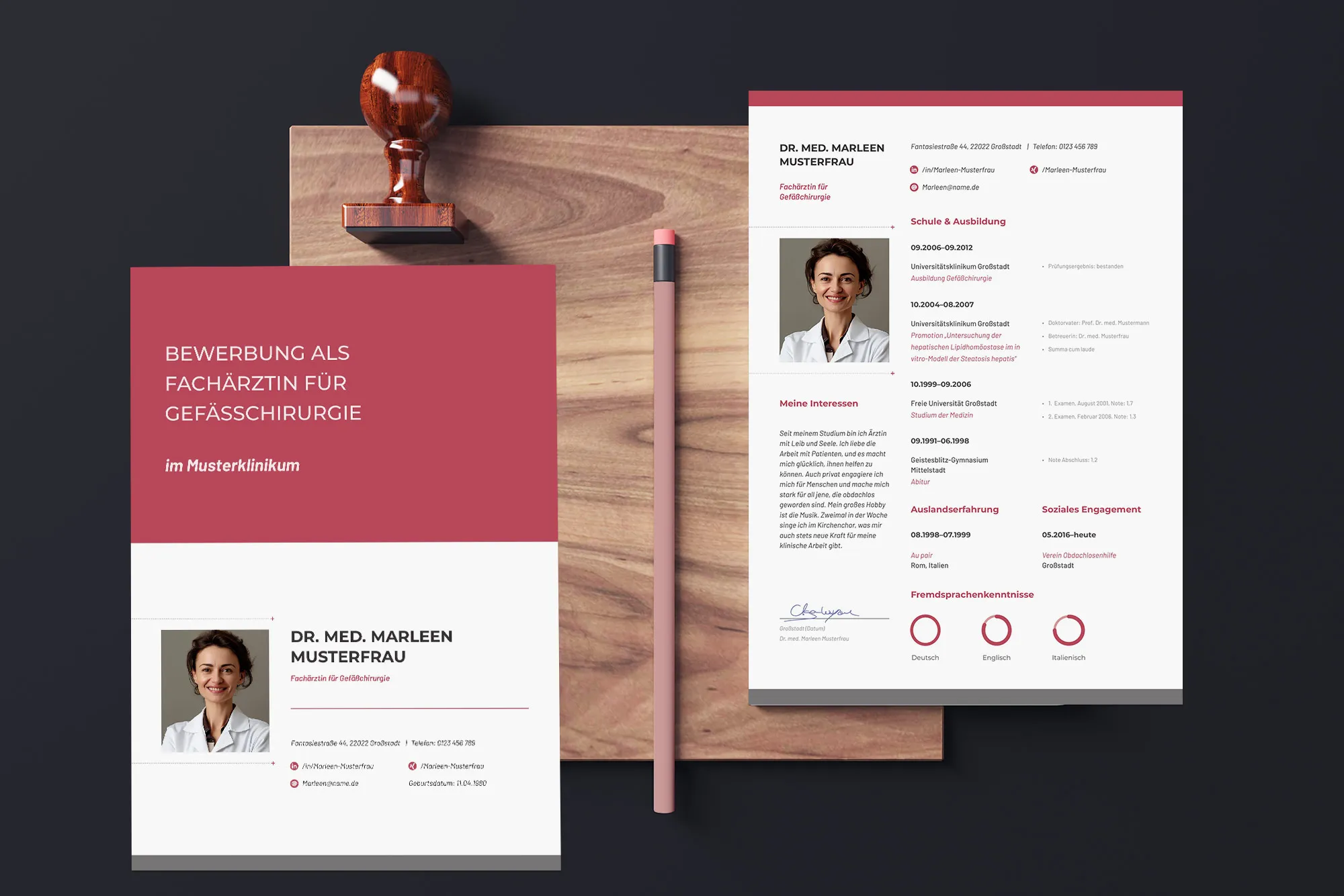
3. what does your ideal working day look like?
This question can be used to find out whether the working environment and the distribution of tasks in the company meet the applicant's expectations. It is interesting to see how an applicant organizes their working hours and which tasks they prioritize in order to determine their potential efficiency.
A positive example of an answer is: My ideal working day consists of a combination of independent work and team meetings. I like to have time to concentrate on my work, but I also appreciate the opportunity to exchange ideas with colleagues.
A negative answer example is: I don't like to be distracted, so I don't want to be approached by anyone during the day.
4. how do you define your ideal work-life balance?
This type of question helps to clarify how an applicant divides their time between work and personal interests, which is important to maintain a high level of productivity and job satisfaction. It also helps to determine whether the company's work rhythm matches the applicant's personal needs.
An example of a positive response is: The ideal work environment for me is a place where open communication and mutual respect are encouraged. It should be an environment where employees are encouraged to contribute their ideas and think creatively. Flexibility in work arrangements and the opportunity for further training are also important in order to continuously develop. I also appreciate a positive team culture that emphasizes collaboration and support. At my last employer, I was able to work in such an environment and it contributed significantly to my satisfaction and productivity because I was also happy in my private life.
A negative answer example is: I am willing to work as long as it takes to get the job done and not think about my free time.
5. how do you define an ideal working environment?
The goal is to find out what working conditions are most favorable for the applicant. This question helps recruiters determine if they can provide the type of environment that is important to attract and retain talented employees.
An example of a positive answer is: " An ideal work environment for me is one where communication and collaboration are encouraged. It should be a place where employees feel valued and can contribute their ideas. Flexibility and support for professional development are also important aspects. I also value a positive and inspiring atmosphere that emphasizes teamwork and innovation. At my last employer, the working environment was exactly the same, and this not only significantly increased my productivity, but also my satisfaction.
A negative answer example is: I don't care where I work as long as the work gets done.
Conclusion
The success of a job interview depends on your qualifications and experience, as well as your ability to show that you know exactly what is expected of you and how you can contribute to the company's goals. Each of the above questions reflects important aspects that matter to an employer: from company culture to management expectations, from the ideal working day to work-life balance, from the ideal working environment to the vision of your own career development. Your answers should reflect your personal beliefs and professional goals and also show that you see yourself as part of the company. They should demonstrate your desire to contribute to the company's development and your willingness to fit into the corporate culture. Well-chosen answers emphasize your uniqueness as an applicant and your motivation to work for a particular company and are therefore likely to be the key to getting the job. In this way, you distinguish yourself positively and competently from other applicants and increase the chance that the company will choose you as a candidate.
We wish you every success!
Interview questions: Best preparation for a job interview
From Matthias Petri
